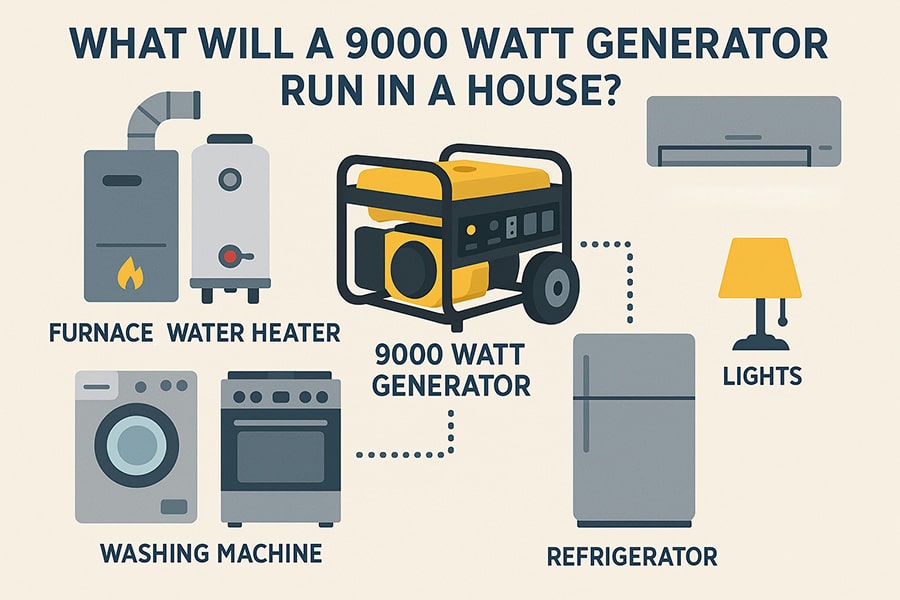Power outages are frustrating. You lose lights, comfort, and connection. A 9000-watt generator can be your strong backup plan.
A 9000-watt generator can power many essential household items. This includes central air conditioners, refrigerators, lights, and kitchen appliances. It offers enough electricity for most homes to stay comfortable during an outage, typically providing around 37.5 to 45 amps1.
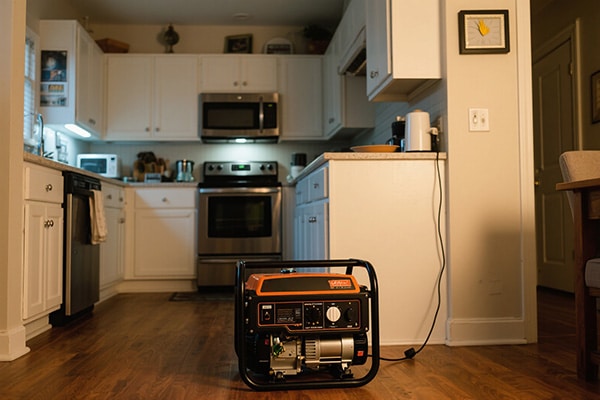
So, you’re thinking about a 9000-watt generator. You want to know if it’s the right choice for your house. It’s a common question I get. Let’s look closely at what this size of generator can do. We need to understand its power and what you should think about before you buy one. This way, you can be sure it meets your needs when the power goes out.
Is a 9000 watt generator enough to run a house?
You might wonder if 9000 watts is too much or not enough. Choosing the wrong size means problems. A 9000-watt generator can often be just right for your home.
Yes, for many homes, a 9000-watt generator is quite capable. It can run essential appliances and even some high-demand ones. It typically delivers around 37.5 amps at 240V, or as I’ve seen in the field, up to a robust 45 amps at 220V, covering many household circuits effectively.
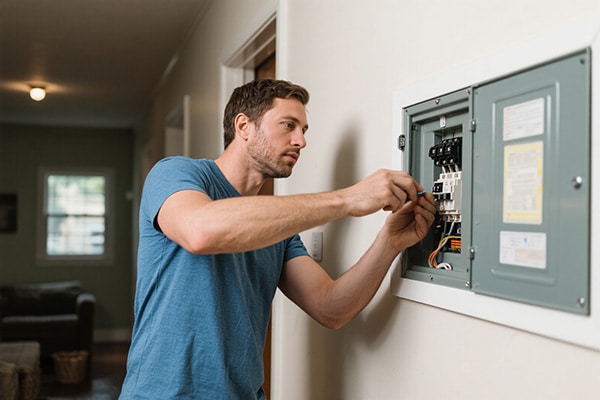
When we ask if a 9000-watt generator is "enough," it really depends on your specific house and what you consider essential. For a typical medium-sized home, 9000 watts (which provides about 7500-9000 running watts) offers a lot of flexibility. As I mentioned, this can translate to a maximum output of about 45 amps at 220V. Most home circuits are 15 or 20 amps, with larger appliances like dryers or some central AC units on 30 or 40-amp circuits. So, a 9000-watt generator can handle a good mix.
I always tell my clients to think about two types of wattage: running watts and starting watts. Motor-driven appliances like refrigerators, well pumps, and air conditioners need a lot more power to start up than they do to keep running. This initial surge is important. A 9000-watt generator is designed to handle some of these surges, but you can’t start everything at once.
Here’s a general idea of what it can manage, often simultaneously, but with careful planning:
| Appliance Category | Examples | Key Wattage Consideration |
|---|---|---|
| Climate Control | Central AC (up to 3-4 tons), Window ACs, Fans | High Starting Watts |
| Refrigeration | Refrigerator, Freezer | Cycles On/Off |
| Kitchen (Cooking) | Microwave, Electric Kettle, Coffee Maker | High Running Watts |
| Water Systems | Well Pump, Sump Pump, Electric Water Heater | Essential, Can be High |
| Lights & Electronics | Lights (LEDs are best), TV, Computers, Modem | Adds Up |
| Other Conveniences | Garage Door Opener, Medical Devices | Check Specific Needs |
You should make a list of what you absolutely need to run. Then, add up their running watts and note any high starting watt items. It’s wise to keep your total running load ideally below 80% of the generator’s capacity for safety and efficiency. I remember helping a family prepare for hurricane season. We listed all their appliances, calculated the wattages, and found that a 9000-watt unit was perfect. They could run their AC, fridge, lights, and even the TV for news updates by simply being mindful not to start the AC and the microwave at the exact same second.
How long will a 9000 watt generator run on a tank of gas?
Worried about refueling during a long blackout? It’s a valid concern. Knowing your generator’s runtime helps you plan and stay powered.
A 9000-watt generator’s runtime varies based on its fuel tank size and the electrical load. Typically, you might see 8 to 12 hours of operation at a 50% load from a standard tank, which is often around 6 to 8 gallons of gasoline.
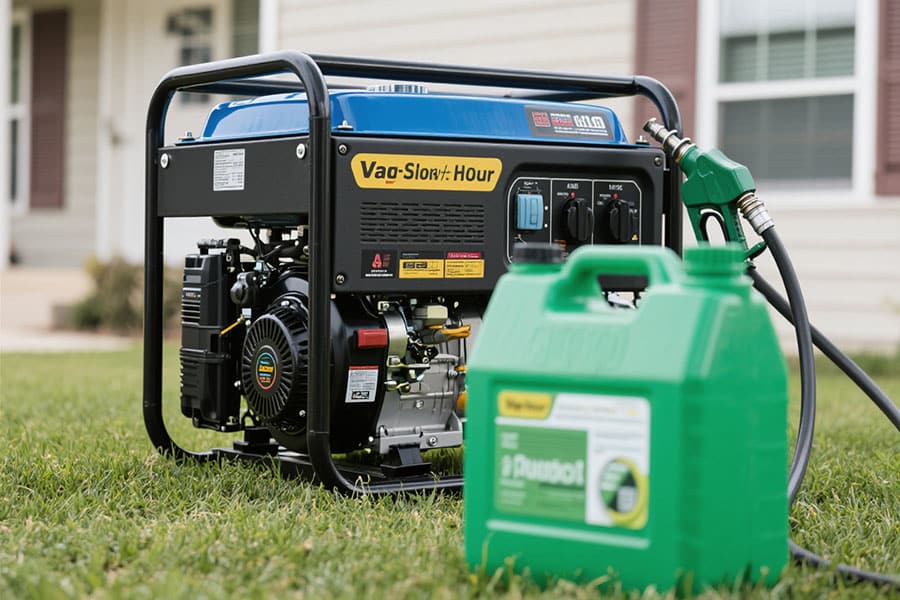
Several things affect how long your 9000-watt generator will run. The first is the size of its fuel tank. Most portable generators in this power range have gasoline tanks between 6 and 8 gallons. The second major factor is the load – how many appliances you’re running and how much power they draw. A generator running at 25% load (using about 2250 watts) will run much longer than one running at 75% load (using about 6750 watts).
For example, if your 9000-watt generator has a 7-gallon tank and you’re running it at 50% load (around 4500 watts), you might get about 10 hours of runtime. If you reduce the load, say just essentials like the fridge, a few lights, and a fan, you could stretch that time significantly. I had a client who lived in a rural area prone to long outages. He became an expert at load management with his 9000-watt unit. He’d cycle appliances, using the microwave then turning it off before running the well pump, to maximize his fuel.
Generator efficiency also plays a part. Newer models tend to be more fuel-efficient. Regular maintenance is also key. A clean air filter and a good spark plug help the engine run smoothly and use fuel more effectively. It’s also important to use fresh, properly stored gasoline. Stale fuel can cause running problems and reduce efficiency. Many of my customers keep a couple of extra approved fuel cans safely stored, rotating the fuel periodically to ensure it’s fresh when needed. This preparation makes a big difference when an outage lasts longer than expected.
Will a 9000 watt generator run an air conditioner?
Hot weather without AC is tough. Losing your air conditioner during a power outage can be miserable. A 9000W generator can often keep you cool.
Yes, a 9000-watt generator can usually run a central air conditioner up to about 3 or sometimes 4 tons, or several window AC units. It’s crucial to check your AC’s specific starting wattage requirements first, as this surge can be high.
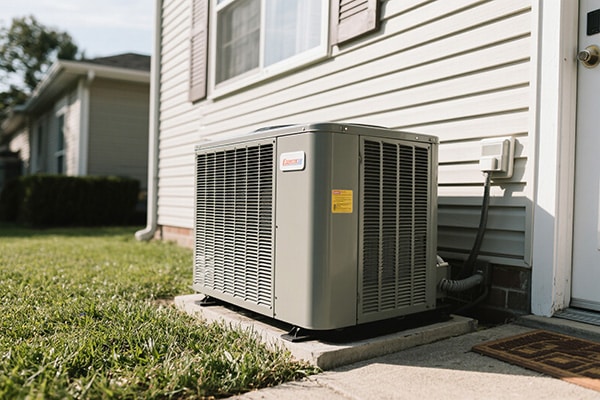
Air conditioners are one of the biggest power consumers in a home, especially when they first start up. This is because the compressor motor needs a big jolt of electricity to get going – this is called starting wattage or Locked Rotor Amps (LRA). After it’s running, it uses less power, known as running wattage. A 9000-watt generator (which usually offers around 7500-9000 continuous running watts) needs to be able to handle that initial starting surge.
Central air conditioners are sized in tons or BTUs (British Thermal Units). Here’s a general guide, but always check the nameplate on your specific AC unit:
| AC Size (Central) | Typical Running Watts | Typical Starting Watts | Likely with 9000W Gen? |
|---|---|---|---|
| 2-ton (24,000 BTU) | 2,000-2,500W | 3,500-5,000W | Yes |
| 3-ton (36,000 BTU) | 3,000-3,800W | 5,000-7,000W | Yes, manage other loads |
| 4-ton (48,000 BTU) | 3,800-4,800W | 6,000-8,500W | Potentially, very tight |
| 5-ton (60,000 BTU) | 5,000-6,500W | 8,000-12,000W | Unlikely for starting |
Disclaimer: These are general estimates. Your AC’s actual wattage may vary.
As you can see, a 3-ton unit is often manageable if its starting watts are within the generator’s peak capacity. A 4-ton unit might be pushing it. Window AC units are much easier, usually drawing between 500 to 1500 running watts, so a 9000-watt generator could run multiple units.
One of the most important operational guidelines I give my clients is to start motor-based appliances sequentially. Don’t try to start your central AC at the exact same moment you turn on an electric water heater or a large pump. Let the AC start and settle into its running wattage first. I recall a customer who initially thought their 9000-watt generator wasn’t enough for their 3-ton AC. It turned out they were also trying to run their electric oven simultaneously. Once they staggered the startup of these heavy loads, the generator handled the AC just fine. Verifying appliance specifications against the generator’s capacity is always step one.
Conclusion
A 9000W generator provides significant power for most homes. Assess your needs and manage appliance loads carefully for reliable and comfortable backup power during any outage.
-
Understanding amps is crucial for anyone working with electrical systems, as it helps in ensuring safety and efficiency. ↩

